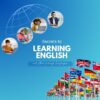Category: International
The Stories Clothes Tell: Capturing a Toddler’s Growth Through Outfits
Toddlers grow up fast. Their clothing tells a story of those years if only we could capture them. Well, we can, with lots of digital tools–pictures, videos, IG stories, FB calls with family. We’ll get into those in a later article. For this one, the Ask a Tech Teacher team is addressing what those stories are…
The Stories Clothes Tell: Capturing a Toddler’s Growth Through Outfits
Each tiny outfit carries memories of milestones and the fleeting days of childhood for parents. From the first pair of onesies to the favorite superhero t-shirt, every piece of clothing tells a story about a toddler’s growth, personality, and experiences.
Toddlers outgrow their clothes quickly, which makes each garment a marker of a specific moment. As parents curate wardrobes for their little ones, they can also preserve memories. Some parents even keep a few cherished pieces as keepsakes. Visiting a trusted toddler clothing website is a great way to find unique, high-quality outfits that can become part of these memories.
Why Clothes Hold Emotional Value for Parents
Toddler clothes often evoke strong emotions. That polka-dot dress may remind you of your child’s first steps, while a tiny pair of overalls might bring back memories of their playful adventures in the backyard. Parents tend to attach meaning to these items because they symbolize their child’s growth and development.
Clothes also reflect a child’s personality and interests at different stages. One week, a toddler might insist on wearing a bright yellow raincoat everywhere, even on sunny days. Another time, they might refuse to wear anything other than their dinosaur pajamas. These preferences show how toddlers begin to express their individuality.
Outfits as Markers of Milestones
Clothes have a unique way of marking key moments in a toddler’s life. No matter if it’s a special occasion, a holiday, or just an ordinary day turned memorable, the outfits worn during these moments become part of the story. Here are some common milestones and their accompanying outfits:
| Milestone | Outfit Example | Memories Created |
| First steps | Soft-soled shoes or stretchy overalls | Capturing their first wobbly movements |
| Birthday celebrations | Party dresses or themed T-shirts | The joy of candles, balloons, and giggles |
| First day at preschool | Comfy pants and a backpack | A big step into the world of learning |
| Seasonal holidays | Festive pajamas or matching family outfits | Traditions filled with warmth and cheer |
| Playtime outdoors | Sturdy sneakers and casual T-shirts | Adventures in sandboxes and grassy fields |
How to Document Growth Through Clothes
1. Create a Photo Journal
Take pictures of your toddler in their favorite outfits during special moments. Over time, these photos will form a visual timeline of their growth. Organize the pictures by date or milestone to create a meaningful keepsake that’s easy to revisit.
2. Save a Few Special Pieces
Choose a handful of garments that hold the most sentimental value and store them in a memory box. Label each piece with a note about the occasion or moment it represents.
3. Make a Quilt or Pillow
Transform outgrown clothes into a patchwork quilt or cushion. It’s a unique way to preserve the memories tied to each piece. This functional keepsake can also become a comforting reminder of your toddler’s early years.
4. Write Stories
Pair pictures of outfits with short descriptions of the moments they represent. Include details like what your child loved about the clothes or why they were significant. These written memories will enrich the visual story and provide a deeper connection to those moments.
5. Display in a Shadow Box
Frame a particularly special outfit alongside photos and mementos from the same period. Small items like shoes or favorite toys can make the display even more meaningful.
The Evolution of Personal Style
Toddlers’ sense of style can be as simple as choosing bright colors, picking clothes with favorite characters, or insisting on mismatched socks. While these choices may seem whimsical, they are an early form of self-expression.
Parents can encourage this creativity by providing options that align with their child’s preferences while ensuring practicality. For example, if your child loves glittery clothes, look for options that are comfortable and durable. Letting toddlers select their outfits helps them feel confident and valued.
How Clothes Connects to Memories
Clothes often become intertwined with memories, and they create a tangible connection to the past. That cozy jacket worn on family hikes or the pajamas your toddler wore during bedtime stories can instantly transport you back to those moments. Over time, these items serve as a bridge to cherished times and remind you of how far your child has come.
Looking back at old outfits can also be a fun activity as your toddler grows. They may enjoy hearing the stories behind the clothes and learning about the adventures they had while wearing them. This reflection helps them develop an appreciation for their journey.
In a Nutshell
The clothes toddlers wear tell rich, colorful stories about their early years. Each outfit holds memories of milestones, celebrations, and everyday adventures. Documenting these moments creatively will help parents capture the essence of their child’s growth and personality. From baby shoes to favorite t-shirts, every garment becomes part of a narrative that will bring joy for years.
Here’s the sign-up link if the image above doesn’t work:
https://forms.aweber.com/form/07/1910174607.htm
“The content presented in this blog are the result of creative imagination and not intended for use, reproduction, or incorporation into any artificial intelligence training or machine learning systems without prior written consent from the author.”
Jacqui Murray has been teaching K-18 technology for 30 years. She is the editor/author of over a hundred tech ed resources including a K-12 technology curriculum, K-8 keyboard curriculum, K-8 Digital Citizenship curriculum. She is an adjunct professor in tech ed, Master Teacher, freelance journalist on tech ed topics, and author of the tech thrillers, To Hunt a Sub and Twenty-four Days. You can find her resources at Structured Learning.
Share this:
- Click to share on Facebook (Opens in new window) Facebook
- Click to share on X (Opens in new window) X
- Click to share on LinkedIn (Opens in new window) LinkedIn
- Click to share on Pinterest (Opens in new window) Pinterest
- Click to share on Telegram (Opens in new window) Telegram
- Click to email a link to a friend (Opens in new window) Email
- More
Language: The Biggest Communication Barrier for Foreign Students?
Communication as a student in a foreign land depends heavily on knowledge of the language. But there’s more to it than translation, sentence structure, and comprehension. The Ask a Tech Teacher international team has a few broader issues to think about when considering what barriers face students in foreign lands:
Language: The Biggest Communication Barrier for Foreign Students?
You’ve found your dream course in a foreign university and got accepted. A new adventure begins for you. Your education abroad could have been such a pleasant and thrilling journey.
But when you get off the flight, it hits you that it’s a foreign country. New people, culture, and most importantly, a new language!
All of a sudden, you are outside your comfort zone. But you must overcome the language barrier as soon as possible.
If this story rings a bell in your mind, too, don’t worry. I’ve been on the same page also. I understand that speaking, note-making, and working on assignments in another language is quite hectic.
What Language Barriers Do Foreign Students Face?
Do you remember season 6 of Modern Family? Gloria from Columbia had a hard time in the US. On that note, she said something very relevant- “Do you know how frustrating it is to have to translate everything in my head before I say it? Do you even know how smart I am in Spanish?”
If you can empathize with international students, you will know what problems they face, day in and day out! A recent study says that language barriers impact well well-being of many international students. And the issues that they face the most are: (more…)
Share this:
- Click to share on Facebook (Opens in new window) Facebook
- Click to share on X (Opens in new window) X
- Click to share on LinkedIn (Opens in new window) LinkedIn
- Click to share on Pinterest (Opens in new window) Pinterest
- Click to share on Telegram (Opens in new window) Telegram
- Click to email a link to a friend (Opens in new window) Email
- More
Exploring the Intersection of Art and STEM Through DIY Projects
Showcasing art and STEM with DIY projects not only enhances learning and creativity but makes these subjects more accessible to a broader audience. The Ask a Tech Teacher team explores how to do that in innovative ways that should please your students:
Exploring the Intersection of Art and STEM Through DIY Projects
Blending art and STEM into creative DIY projects isn’t just fun—it’s a brilliant way to help kids learn. By combining creativity with problem-solving, children can better understand concepts that might otherwise seem too technical or dull. These activities encourage hands-on learning and spark curiosity, making art a natural gateway into the exciting world of STEM.
What is STEAM and Why Does Art Matter in STEM?
STEAM is an educational approach that includes science, technology, engineering, art, and math. Adding art to STEM isn’t just a trendy idea; it’s a game-changer for education.
Why?
Because art bridges the gap between creative expression and technical knowledge. It makes abstract ideas tangible and helps kids visualize concepts that can seem confusing. Take geometry, for example. Kids can learn about shapes and symmetry by designing patterns or mosaics. Art also adds personality to STEM, making lessons more relatable. A child designing a rocket for a science project might include unique colors and designs, connecting creative thinking with engineering. Art also makes STEM less intimidating. A child who struggles with math might feel more confident when they see how it connects to something creative, like designing a math mosaic.
This integrated approach makes learning more accessible and enjoyable, fostering a love for discovery. (more…)
Share this:
- Click to share on Facebook (Opens in new window) Facebook
- Click to share on X (Opens in new window) X
- Click to share on LinkedIn (Opens in new window) LinkedIn
- Click to share on Pinterest (Opens in new window) Pinterest
- Click to share on Telegram (Opens in new window) Telegram
- Click to email a link to a friend (Opens in new window) Email
- More
Be a Quick Learner: 6 Tips to Learn Any Language Faster
Learning a language is a long process, often filled with ups and downs. The Ask a Tech Teacher team has these six tips to help you learn any language faster:
Be a Quick Learner: 6 Tips to Learn Any Language Faster
Learning a new language may be overwhelming, but it can also be enjoyable and rewarding when you apply the right strategies. You’ll be amazed at your progress when you’re dedicated to learning with a positive mindset.
If you want to learn a language faster, you need to double your efforts. From perfecting pronunciation to saying complete sentences in a foreign language, these practical tips can make language learning fun and efficient. (more…)
Share this:
- Click to share on Facebook (Opens in new window) Facebook
- Click to share on X (Opens in new window) X
- Click to share on LinkedIn (Opens in new window) LinkedIn
- Click to share on Pinterest (Opens in new window) Pinterest
- Click to share on Telegram (Opens in new window) Telegram
- Click to email a link to a friend (Opens in new window) Email
- More
The Secret to Learning English and Other Foreign Languages Faster
Surprisingly, learning a foreign language has a set of guidelines that–if followed–are pretty good predictors of success. I didn’t know this, wish I did in the years I struggled through Russian. The Ask a Tech Teacher international team has put together a list for you. These aren’t online tools or books, but mental conscripts that will get you where you want to be with more efficiency and less pain:
The Secret to Learning English and Other Foreign Languages Faster
Mastering a new language can be a transformative journey, opening doors to new cultures, opportunities, and personal growth. For many, the challenge of learning a foreign language like English may seem daunting, but with the right strategies, the process can become both efficient and enjoyable. By adopting effective techniques, such as immersion, using media, and leveraging online resources, anyone can accelerate their language learning journey. (more…)
Share this:
- Click to share on Facebook (Opens in new window) Facebook
- Click to share on X (Opens in new window) X
- Click to share on LinkedIn (Opens in new window) LinkedIn
- Click to share on Pinterest (Opens in new window) Pinterest
- Click to share on Telegram (Opens in new window) Telegram
- Click to email a link to a friend (Opens in new window) Email
- More
Career Guidance in Cypriot Schools: How Students are Prepared for a Successful Future
Career Guidance in Cypriot Schools: How Students are Prepared for a Successful Future
School education in Cyprus is recognized by the world community of educators as the most progressive and fundamental. A rich and interesting educational program has been created for students, the main goal of which is to make learning a positive process in the life of every child.
Children study for twelve years, which is enough time to gradually acquire useful skills and knowledge. The educational system provides quality education for children aged 5 to 17-18 years. If a family is just planning to move to Cyprus, it is worth knowing that foreign children have the same rights to educational services as local children.
The professional orientation of students is exactly the direction in which Cypriots have achieved significant success. Educational institutions are based on the British model of education. This means that the greatest attention is paid to the development of each child’s individual personality. State or elite school – educational institutions of all forms of teaching are strictly controlled by the Ministry of Education of Cyprus. (more…)
Share this:
- Click to share on Facebook (Opens in new window) Facebook
- Click to share on X (Opens in new window) X
- Click to share on LinkedIn (Opens in new window) LinkedIn
- Click to share on Pinterest (Opens in new window) Pinterest
- Click to share on Telegram (Opens in new window) Telegram
- Click to email a link to a friend (Opens in new window) Email
- More
From Fractions to Functions: Navigating Key Topics in GCSE Maths
Sophia Birk, a digital nomad currently living in Poland, is an international member of the AATT team of educators and a math aficionado. Here are her thoughts on navigating key topics in GCSE Maths:
From Fractions to Functions: Navigating Key Topics in GCSE Maths
The General Certificate of Secondary Education (GCSE) exams are a major ordeal for students and teachers. For our learners, the issue revolves around earning the best marks – the highest grades. For teachers, preparing students for GCSE success is the greatest concern.
Maths is one of two compulsory GCSE subjects. It’s also a life skill that, woefully, far too few are well-versed in, according to statistics. Maths teachers aim to ensure learners leave school with well-developed numeracy capabilities. The GCSE exam certifies their efforts.
These papers test students over everything they learned in maths classes, from primary school through secondary education. Thus, pupils have much to revise ahead of their exams. This article presents the six key topics that feature on the exam, and what each topic covers. (more…)
Share this:
- Click to share on Facebook (Opens in new window) Facebook
- Click to share on X (Opens in new window) X
- Click to share on LinkedIn (Opens in new window) LinkedIn
- Click to share on Pinterest (Opens in new window) Pinterest
- Click to share on Telegram (Opens in new window) Telegram
- Click to email a link to a friend (Opens in new window) Email
- More
22+ Tips on How to Work Remotely
Life often interferes with work. Vacations, conferences, PD–all these take us away from our primary functions and the environment where we are most comfortable delivering our best work. I thought about this when I read an article by a technical subject teacher (math, I think) pulled away from his class for a conference. Often in science/math/IT/foreign languages, subs aren’t as capable (not their fault; I’d capitulate if you stuck me in a Latin language class). He set up a video with links for classwork and a realtime feed where he could be available and check in on the class. As a result, students–and the sub–barely missed him. Another example of teaching remotely arrives when schools struggle with the unusually high number of snow days. So many, in fact, that they were either going to have to extend the school year or lose funding. Their solution: Have teachers deliver content from their homes to student homes via a virtual set-up.
And then, of course, there’s COVID shut-downs. Nuff said.
All it took to get these remote systems started was a problem that required a solution and flexible risk-taking stakeholders who came up with answers. Before we talk about delivering education to the students, let’s talk about the best way teachers can make this work for themselves–mostly seated, in one room, without the constant to-and-fro of students and colleagues. Here are some ideas: (more…)
Share this:
- Click to share on Facebook (Opens in new window) Facebook
- Click to share on X (Opens in new window) X
- Click to share on LinkedIn (Opens in new window) LinkedIn
- Click to share on Pinterest (Opens in new window) Pinterest
- Click to share on Telegram (Opens in new window) Telegram
- Click to email a link to a friend (Opens in new window) Email
- More
Starlink–What is it? Why use it?
I’ve had a lot of trouble with my email the last few months. My newsletter is falling apart. My home email is changing servers–who knows what that will require on my part. My spam folder has had a mental breakdown and never (ever) works correctly. And, my internet services are suffering more than their usual annoying level of quirks and breaks.
I’m looking for a change. There’s one big option I’ve been watching for a few years: Starlink. It doesn’t use fiber or cable–it runs off satellites. I haven’t pulled the trigger (it requires geeky setup and a substantial startup fee), but every year, after every internet and email problem, it gets more interesting. Starlink probably won’t fix my email problems, but it might put a dent in my internet issues. Several friends and efriends use it and are thrilled with it. Liesbet over at Roaming About, a self-proclaimed nomad, happily roaming about South America, switched to Starlink and loves it.
One of the reasons I don’t make the switch is it’s not easy (and I like easy). It costs something like $600 in equipment and the monthly fee is somewhere around $150-$200, but to get away from the Earth-based internet problems that can be hacked, cracked, and virused is appealing. (more…)
Share this:
- Click to share on Facebook (Opens in new window) Facebook
- Click to share on X (Opens in new window) X
- Click to share on LinkedIn (Opens in new window) LinkedIn
- Click to share on Pinterest (Opens in new window) Pinterest
- Click to share on Telegram (Opens in new window) Telegram
- Click to email a link to a friend (Opens in new window) Email
- More
Happy Chinese New Year
Chinese New Year, also known as the Spring Festival or Lunar New Year, is a traditional Chinese festival that marks the beginning of the Chinese lunar calendar. The celebration usually lasts for 15 days. The date varies each year, based on the lunar calendar. This year, it is February 10, 2024.
During Chinese New Year, people welcome the new year and engage in activities that bring good luck. Some common practices include:
- Family Reunion: It is a time for family members to come together, similar to Western cultures’ celebration of the New Year.
- Feasting: Families prepare and share elaborate meals with symbolic dishes that represent good fortune and prosperity.
- Red Decorations: Red is a dominant color during Chinese New Year, symbolizing good luck and warding off evil spirits. People decorate their homes with red lanterns, couplets, and other red items.
- Fireworks and Firecrackers: The loud sounds of fireworks and firecrackers are believed to scare away evil spirits and bring good luck.
- Giving Red Envelopes (Hongbao): Adults give red envelopes containing money to children and unmarried individuals as a gesture of good wishes and blessings.
- Cleaning and Spring Cleaning: It is customary to clean the house thoroughly before the new year to sweep away bad luck and make room for good fortune.
- Dragon and Lion Dances: Traditional dragon and lion dances are performed in streets and public spaces to bring good luck and prosperity to the community.
- Temple Visits: Many people visit temples during Chinese New Year to pray for good fortune and make offerings.
Overall, Chinese New Year is a joyous and festive time aimed at ushering in prosperity, happiness, and good luck for the coming year.
–image credit Deposit Photos (more…)
Share this:
- Click to share on Facebook (Opens in new window) Facebook
- Click to share on X (Opens in new window) X
- Click to share on LinkedIn (Opens in new window) LinkedIn
- Click to share on Pinterest (Opens in new window) Pinterest
- Click to share on Telegram (Opens in new window) Telegram
- Click to email a link to a friend (Opens in new window) Email
- More



























































